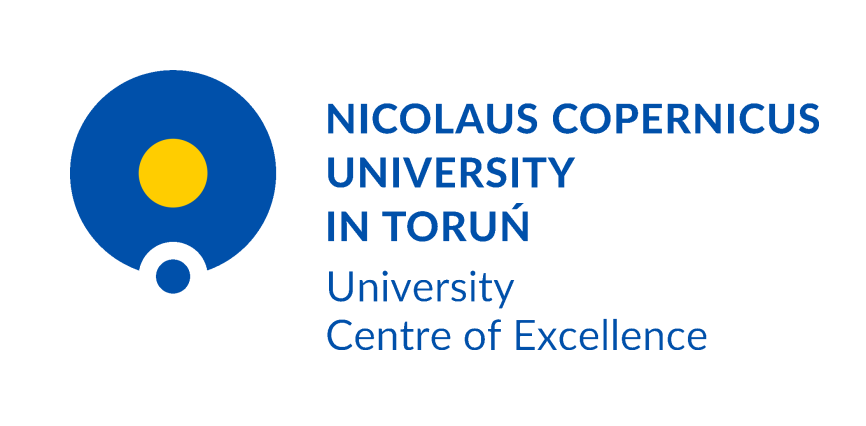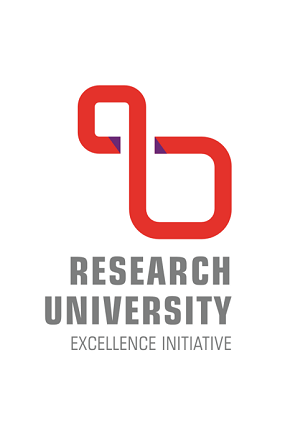Grant Application
YUFE4POSTDOCS
Yufe4Postdocs (Y4P) is an ambitious training programme co-funded by Horizon Europe’s Marie Sklodowska-Curie programme. It is part of the Young Universities for the Future of Europe (YUFE) Alliance, which brings together nine young research-intensive universities from across Europe. They are collaborating to contribute to a more competitive, innovative and united Europe.
YUFE universities are pleased to announce two calls for postdoctoral research positions, open for all disciplines, under the overarching theme of ‘Urban opportunities and challenges’. A new Y4P website has been launched and will be regularly updated with further information about the project. The first call will be open from 1st March to 7th May 2023 and will focus on Sustainability and Digital Societies. The second call will be open from 1st October 2023 and will focus on Citizens’ Well-being and European Identity. Information on potential host research groups can be found using our Y4P Expertise Webtool. Any general queries about the program can be sent to the Y4P Helpdesk mailbox: yufe4postdocs@uantwerpen.be
ULAM NAWA PROGRAMME
The Polish National Agency for Academic Exchange (NAWA) invites scientists from foreign universities and research institutes with doctoral degree to apply for ULAM programme!
It’s the 5th edition of Stanisław Ulam’s Programme already! The aim of the Ulam Programme is to increase the internationalisation of Polish institutions of science and higher education. The Programme will allow both recognised and promising scientists who hold at least a doctoral degree, to visit Poland in order to strengthen the scientific potential of Polish entities and to participate in their scientific activities, primarily research projects and didactics.
4 calls for proposals have been resolved so far, each of them consisting of multiple times more proposals than the planned funding could allow. The former editions’ proposals had a 22% success rate overall, with proposals of over 250 beneficiares from 52 countries receiving funding.
The ULAM NAWA Programme beneficiaries have chosen over 66 different Polish institutions and universities on which they would like to conduct research. Although some of the projects have already been finished, many scholars decided to remain in Poland, finding longer employment in our universities and institutions and writing new projects and articles together with Polish researchers.
The call for applications under the Programme will be conducted from 21 February to 22 May 2023 until 3:00 PM according to the official time in Poland.
SCIENTIFIC STAY
If you are looking for a place for your scientific stay, then visit the University Centre of Excellence “Interacting Minds, Societies, Environments” (IMSErt) at the Nicolaus Copernicus University in Toruń!
Duration of the stay: min. 1 month, max 12 months
Salary: (1) 4 000 PLN per week when the stay lasts less than 1 month;
(2) 15 000 PLN in the first month of the stay and 10 000 PLN in the next months when the stay lasts more than 1 month.
If you are interested in this offer, then prepare a scientific project of research which you would like to conduct at our Centre and send it to us by email: imsert@umk.pl. Do it only if you represent the following research areas:
– linguistics;
– archaeology;
– psychology;
– history of knowledge;
– memory studies;
– social geography;
– environmental studies;
– economics, finance and management.
Team Leaders together with the Scientific Council will analyse the submitted documents. Once the analysis is completed, the interested party will receive feedback.
More information about the mobilities offer provided by NCU can be found here:
https://www.umk.pl/en/research-uni/mobilities/
You should know that Nicolaus Copernicus University received the HR Excellence in Research hallmark.
Contact us if you have any questions. Do not hesitate and join us!
MSCA IF
University Centre of Excellence Interacting Minds, Societies, Environments (IMSErt) is looking for researchers who would like to implement their research projects at Nicolaus Copernicus University within Maria Skłodowska-Curie Actions #IndividualFellowships. If you are interested, then contact us: imsert@umk.pl.
The Nicolaus Copernicus University in Toruń (NCU) is one of the largest universities in Poland, currently comprising 17 faculties (including 3 medical faculties). We are in the top 10 Polish Universities with the status of a research University. “Excellence Initiative ¬ Research University” programme, our university is taking part in, puts emphasis on researchers’ development. https://www.umk.pl/en/research-uni/
We are proud to inform that Nicolaus Copernicus University in Toruń was granted HR Excellence in Research Award. Promoting excellence involves creating an environment for research, training and career development of researchers as well as their mobility. https://www.umk.pl/en/university/excellence-in-research/
We are an employer that offers equal opportunities. We are happy to receive applications from all suitably qualified people regardless of race, gender, functional impairment, religion / belief, sexual orientation or age.
We believe that a diverse and inclusive working environment makes us a more relevant, competitive and resilient organisation.
Past projects
MSCA Horizon 2020 – KNOW Team
The KNOW team works in two overlapping areas: broadly defined studies on knowledge and science – both historical and contemporary, including data science, data and knowledge visualization, science mapping, network analysis. In turn, the studies on memory, starting from strictly humanistic research, open up to neuroscience, medicine, psychology and psychiatry, cognitive science. In both aspects, the comparative approach is essential. The starting point is also significant – Central and Eastern Europe’s specificity as an area different from Euro-Atlantic and postcolonial non-European areas. We form a team that uses modern research tools, exceeding disciplinary and disciplinary constraints, focusing on problem-oriented research.
MSCA Horizon 2020 – EVO Team
The IMSErt: EVO team was formed basing on the Center for Language Evolution Studies at Nicolaus Copernicus University (CLES NCU) and comprised the CLES members and its collaborating researchers. The IMSErt: EVO team conducts qualitative and quantitative research on language evolution and linguistic phenomena such as politeness, CMC, sound symbolism, gesture, and sign language. Our research aims to contribute to answering questions such as: How did language emerge? How does language evolve? What was the relationship between the original systems of human visual and vocal (proto)communication? Do the new media change the way we communicate? What is the relation between language and cooperation?
We are currently working on several projects funded by the Polish National Science Centre (NCN) and the Polish National Agency for Academic Exchange (NAWA), which include a project on the universality of pantomime and its potential to scaffold the evolution of verbal communication and a project aiming to describe the position of the Science of Language Evolution (SLE) in contemporary science and to structure our knowledge of this area. Our foreign research partners notably include Lund University, the University of Vienna, Roma Tre University, West Australia University, and the University of Lisbon.
The laboratory of the IMSErt: EVO team is located in Collegium Maius in the beautiful Old Town of Toruń. It houses equipment and software, including an EyeLink1000 Plus eye tracker, a biofeedback set, Rokoko Smartsuit Pro motion capture set, a fully equipped sound and video studio, and a range of software E-Prime with Chronos, LabVanced, nVivoand SPSS. We are part of the Excellence Initiative – Research University Programme at the host institution in Toruń, Poland.
MSCA Horizon 2020 – PSA Team
The PSE team consists of social geographers and psychologists who focus on antecedents of pro-environmental behaviours (PEB) and urban space perceptions. Our group studies climate change perception, energy transition, green behaviours, spatial and social changes in real urban and rural settings. While psychology captures the individualized reasons for uptaking PEB, human geography brings a more general, systemic context.
Our latest research projects include: (1) place attachment and the role of the physical and social features of spaces in the development of people’s emotional bonds with places; (2) perception of a place’s history and place continuity in the development of place identity; (3) collective memory of cities and its relationship to openness toward the cities’ multicultural past and present; (4) mobility, as related to emotional bonds with places, including the role of having more than one living place (studies of second homeowners); (5) pro-environmental attitudes and behaviours, as related to place perception and social (national) identity; (6) perception of place changes, including the changes due to the revitalization and gentrification processes of degraded urban spaces (also in the context of spatial planning); (7) effects of the transformations of urban spaces due to tourism development, such as the rapid development of Airbnb services and transnational gentrification; and (8) socioeconomic and environmental determinants of leisure time activities in terms of intergeneration effects.
In October 2021, we will open a new Institute of Psychology building with environmental and social psychology laboratory space.
MSCA Horizon 2020 – PAST Team
The PAST Team at IMSErt is looking for post-doc researchers who would like to implement their research projects at Nicolaus Copernicus University within Maria Skłodowska-Curie Actions #Horizon2020.
The PAST team consists of researchers from the Institute of Archeology NCU. They conduct multidisciplinary studies covering epochs from the Paleolithic to Modern Times. The main research topics of the team include socio-cultural (magic, rituals, religion, economy), socio-natural (exploitation of fauna and plant resources, migrations, changes in the natural environment, extinction of species) and technological phenomena (production of objects, exploitation and processing of raw materials). Detailed research scopes concern:
- the functioning of Paleolithic, Mesolithic and Neolithic social groups in the natural environment;
- the history of the Slavs, their religion, the beginnings of states, contacts with the Scandinavian and Baltic peoples;
- an impact of social groups on the variability of plant communities during the Anthropocene;
- the importance of animals and plants in social history;
- social and natural conditions of the processing of organic and inorganic raw materials;
- the functional and spatial structure of the settlement of human groups in the context of natural and cultural factors.
Research is carried out through field archaeology (excavations – collecting and recording data), laboratory works (microscopic observation, data description, processing and modelling), archaeozoology), archaeobotany, traceology and experimental archaeology, and biomolecular research (genetic, isotopic, biochemical and geochemical analyzes).


 ul. Fosa Staromiejska 3, 87-100 Toruń
ul. Fosa Staromiejska 3, 87-100 Toruń